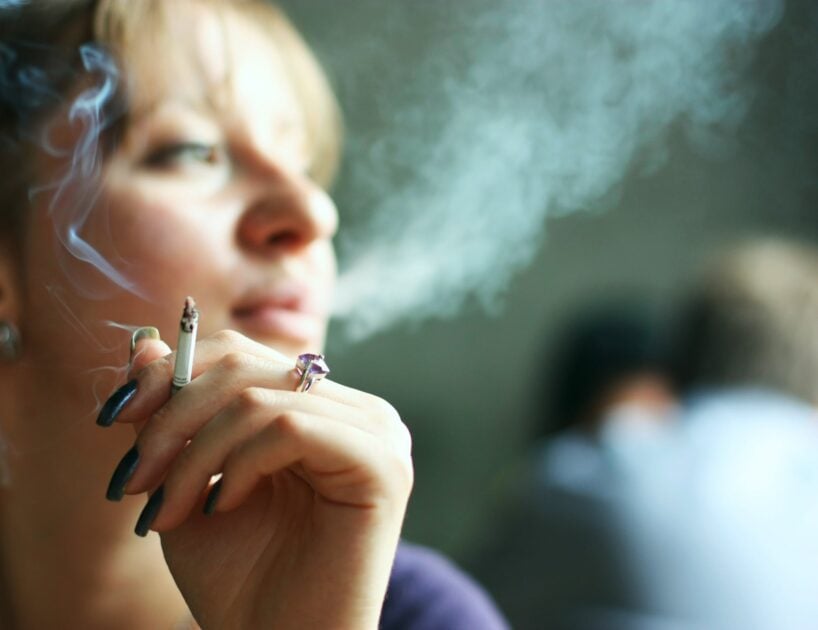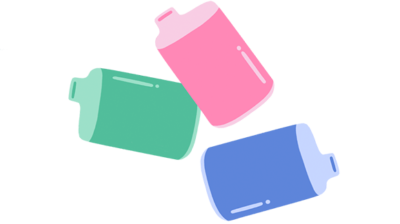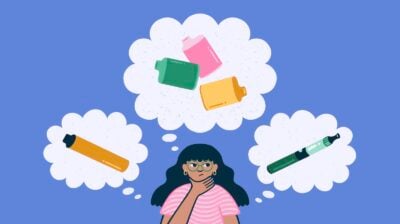What effect does nicotine have on your brain?
Nicotine is a highly addictive substance, but what does it do to your brain?

Nicotine is the addictive chemical found in tobacco products like cigarettes and rollies, and also in vaping devices. Nicotine is highly addictive, which means you become dependent on it.
While nicotine alone does not cause cancer, if you become addicted to it, you will continue to smoke. This puts you at risk of health problems created by the other substances in cigarettes.
Vaping devices do not create the same carcinogenic (cancer-causing) chemicals that cigarette smoking does. They do, however, contain nicotine.
How nicotine affects the body
Nicotine can raise your blood pressure and cause problems in the lungs, stomach, heart and more.
Physical side effects of nicotine include:
- Increased heart rate and blood pressure: because nicotine is a stimulant, it raises the amount of adrenaline, in the body, which raises heart rate and blood pressure.
- Damaged blood vessels: nicotine narrows arteries and damages blood vessel walls, increasing the risk of blood clots, heart attack, and stroke.
- Increased risk of cardiovascular disease: nicotine contributes to the development of atherosclerosis (plaque buildup in arteries) and can lead to heart disease and other heart problems
How nicotine affects the brain
When you smoke, breathe in cigarette smoke or vape, your brain is affected within ten seconds from the first inhale.
You first might feel your heart racing. This is because your brain releases adrenaline when you smoke a cigarette.
You will also feel like you are in a better mood than before. That’s because nicotine releases dopamine in the brain. Dopamine is a chemical in your brain that makes you feel good. Your brain then begins to associate nicotine with this feeling.
Over time, as you continue to smoke, your brain builds up a tolerance. It starts to need higher amounts to feel the benefits. So you end up smoking more than before to feel the rush of again.
Your brain might also come to expect nicotine in certain situations. If you smoke when you are stressed, your brain might crave the dopamine it creates. You might be craving a cigarette in that moment. You might feel that way even if you have stopped smoking for several months.
What happens to your brain when you quit smoking?
If you quit smoking and if your brain is dependent on nicotine, a few different things will happen to your brain.
Your brain will go into withdrawal, which is when it craves something it no longer has. You might feel more anxious, irritable and crave a cigarette or vape.
While this initial period can be very difficult, you will adjust with time to not having it. As that happens, you’ll notice you’ll crave cigarettes and vaping less often. You will eventually not experience these cravings.
Some people might need medical treatment when quitting smoking because of their addiction. This is known as Nicotine Replacement Therapy. Medications are available at pharmacies to help you, like gums and patches. You can also speak to your GP about strategies for quitting.
Read more about Nicotine Replacement Therapy.






